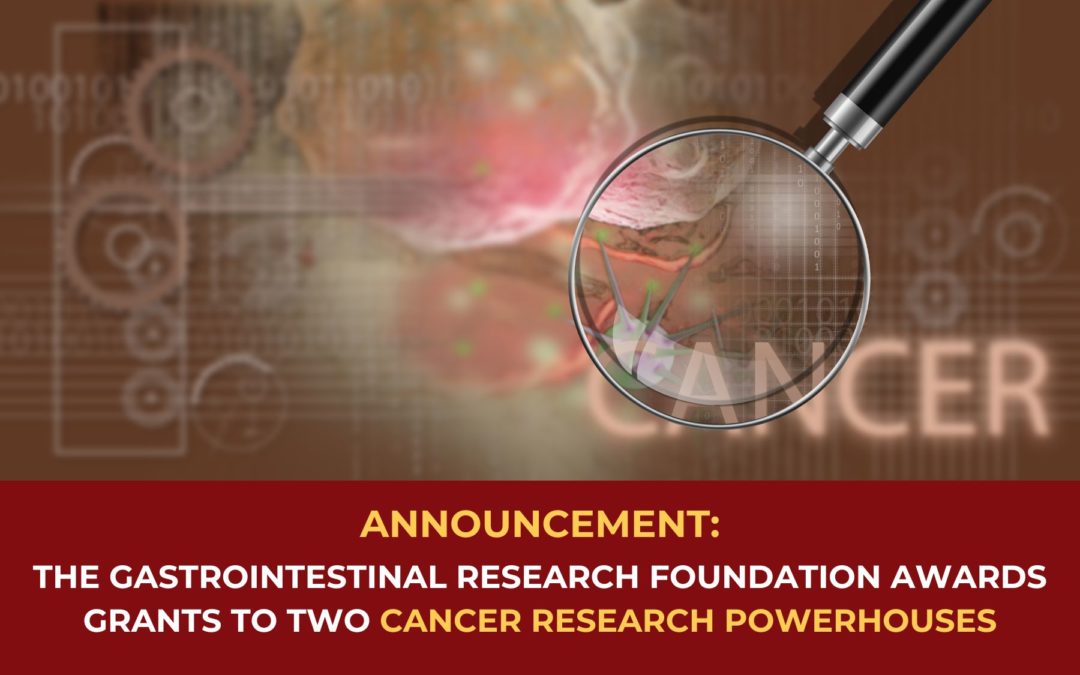CHICAGO, Jan. 24, 2023 (GLOBE NEWSWIRE) — Treating and curing cancer remains an urgent health research priority. The GastroIntestinal Research Foundation (the Foundation) has made bold and innovative grant awards to advance the development of immunotherapies and personalized vaccines for colorectal cancer. With a focus on improving patient outcomes, it has identified and evaluated science from across the country, including two recent awards to The University of Texas MD Anderson Cancer Center and Mayo Clinic.
The Foundation’s Executive Director, Jackie Casey said, “The Foundation designed CA CURE to get vital research dollars quickly into the hands of investigators. Far too many people are developing cancer, many after living with a digestive disease such as ulcerative colitis, Crohn’s, fatty liver disease, and others. Research is the pathway to preventing and curing cancer. With focused funding on immunotherapies and vaccines and by taking multiple shots on goal with multiple research grants, we hope to see new successful treatments on the horizon.”
The Foundation awarded a $3.5 million grant over the next three years to MD Anderson to conduct three interrelated projects designed to improve survival in patients with BRAF-mutated (BRAFmut) colorectal cancer (CRC), seen in about 10% of patients and with poor survival prognosis. These projects will evaluate treatment combinations to block common ways that BRAFmut tumors escape treatment by targeting defects in DNA repair. The research will identify optimal treatment regimens for these tumors. Project 2 will evaluate the diversity of BRAFmut tumors over time and between patients to understand the changes in BRAF biology over multiple lines of therapy. Innovative methodologies will allow tracking of individual cancer cells to compare these changes after targeted therapies. Project 3 will identify novel immunotherapy combinations in tumors without DNA repair defects. An ongoing clinical trial combining immunotherapy and targeted therapy will be expanded. This trial examines treatment-related changes in the immune response in and around the tumor, by examining patient tumor biopsies, to determine if the observed immune responses are related to the clinical response.
Dr. Scott Kopetz, the lead investigator on this research project said, “One of our greatest strengths is moving today’s most promising laboratory findings into new, more effective, treatments. Collectively, this work will support translation of these findings into new clinical trials and provide support for novel treatment approaches in the clinic. Like the GI Research Foundation, we are committed to improved patient outcomes, and we are grateful for its support.”

